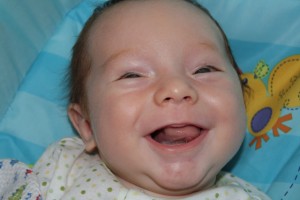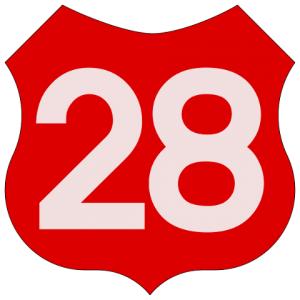The Meerkat method: Using stress to lose weight
By using the Meerkat method of stress control you could covert negative stress responses into postive stress responses.[*]
Step One: Understanding stress: Types of stress, Response to stress and The Effects of stress.
Understanding stress and stress responses
Claims about stress:
Stress causes early death[3]
* Over 50 percent of all health issues are directly related to stress. [1][3] (Read more: Immune system and stress)
Stress causes over eating:
* Published clinical study results found that negative stress makes food taste less sweet [2] and positive stress increases the sweet taste in food. (When experiencing negative stress we may tend to eat overly sweet foods which may result in weight gain)
Types of stress
Primitive stress: Seeing a mouse, snake, spider or fear of death
Stress about events completely out of our control (News)
Dayly events like an unexpected phone call, or people making unrealistic demands from us or any one of thousands of stress triggers.
Time management, financial, work related stress, driving & traffic, family members health issues
Situational stress: Job interviews, public speaking
Chronic stress (ongoing stress, unresolved stress, stress ontop of stress and stress about stress)
Reactions to stress [3]
Sleepless nights, racing heart, butterflies, empty feeling on pit of stomache, sweaty palms, breathing, dry mouth
Direct effects of stress (Stress Hormones) [3]
* Stress triggers chemical responses in our bodies, mostly automatically, preparing for fight or flight.
* Stress hormones causes reactions in our bodies, making us temporary stronger in order to survive. In modern times our body reacts the same (primitive response), we are flooded with stress hormones whenever we feel stressed. For example when we are driving in traffic, when we experience financial stress or when your favourite sports team is playing a match.
* When we are under stress we cannot concentrate, we lose focus and we are even unable to do basic math.
* Too much emotional stress causes us to feel overwhelmed, inability to cope and that eveyrything is of control
* Too much stress and we lose control. Our primal brain takes over and we can have a breakdown or an emotional explosion.
Step Two: Accept some basic truths:
Stress is a feeling, your body frequently asks your mind how you feel about something. If you tell yourself a different truth, your body learns a different reaction.[3]
When you become angry, you experience the same effects as stress. Becoming angry is a choice, it is your decision to become angry.
When you become excited or when you feel anxious , you experience the same effects as stress!
About Your Stress
Your stress is all about you, your reaction to how you feel (and how you feel is your own decision)
Step Three: Dealing with your stress
Traditional stress management tools include meditation, mindfulness and yoga [3]

What exactly is the Meerkat method?
Changing your view – changing a negative to a positive
The Meerkat method uses physical posturing to help us to take control and to convert stress into excitement or into anger.
Stand or sit up as straight as you can, push out your chest and say out loud: I am Angry! or I am Excited!
Take control
(You can even bring your hands together, like a Meerkat, and say out loud: I AM ANGRY! or I AM EXCITED!)
Should not say: “I feel calm” or “I am Okay” – this may have no effect. You should say: I AM EXCITED! or I AM ANGRY!
You need to habitually convert anxiety into excitement or into anger.
The way we see ourselves becomes our reality. If we expect to struggle we will see struggle patterns throughout our day.
Mindset determines performance and our perception and view of ourselves determine our stress levels. [3]
More information about stress
Results of Acute stress or Constant stress: Cortisol over production, immune system lowered, stress on arteries, increased blood pressure, obesity, heart disease and depression. [3]
Too much focus on stress that you cannot escape or control (examples: News, Natural disasters)
Results: Everything simply becomes too much and your world can spin out of control.
Chronic stress requires lifestyle changes to reduce levels of cortisol (stress hormone) : Always eat breakfast, drink water throughout the day, be moderately active (walk the dog)
Stress and our Diet (Stress Eating):
Bad: Fast food, chips, deep fried chicken, chocolate, cakes, donuts, milkshakes
Good: All high GI foods. Berries and nuts
—
[*] The Meerkat method is a posturing method, as described in the clinical and research papers [3] [4]
[1] https://www.ncbi.nlm.nih.gov/pmc/articles/PMC3341916/
[2] https://www.ncbi.nlm.nih.gov/pmc/articles/PMC3240721/
[3] More publications and references:
1. Cohen S, Kessler RC, Gordon LU. Strategies for measuring stress in studies of psychiatric and physical disorders. In: Cohen S, Kessler RC, Gordon LU, editors. Measuring stress: A guide for Health and Social Scientists. Oxford: Oxford University Press; 1995.
2. Lazarus RS. Psychological stress and the coping process. New York: McGraw-Hill; 1966.
3. Selyes H. The stress of life. New York: Mc Graw Hill; 1956.
4. JOSHRC Newsletter More mental disorders or suicide may be certified as occupation-related. 2001 Jan;(22):57.
5. 2003. Self-reported work-related illness in 2001/02: Results from a household survey, (SW 101/02), HSE,
6. Jansen M. Emotional disorders in the labour force: Prevalence, costs, prevention and rehabilitation. Internat Labour Rev. 1986;125:605–15.
7. Simmons SP, Simmons JC. Measuring emotional intelligence. New York: Summit Publishing Group; 1997.
8.
Pelletier KR. Mind as healer, mind as slayer. New York: Dell Publishing Co; 1977. [PubMed]9. Hafen BQ, Frandsen KJ, Karren K, Hooker KR. The health effects of attitudes, emotions and relationship. Provo UT: EMS Associates; 1991.
10. Huebner HS. Burnout among school psychologists: An exploratory investigation into its nature, extent and correlates. School Psychol Quart. 1992;7:129–36.
11.
Segerstrom SC, Miller GE. Psychological stress and the human immune system: A meta-analytic study of 30 years of inquiry. Psychol Bull. 2004;130:601–30. [PMC free article] [PubMed]12. Elliott GR, Eisdorfer C. Stress and Human Health. New York: Springer Publishing Company; 1982.
13.
Gauci M, King MG, Saxarra H, Tulloch BJ, Husband AJ. A Minnesota Multiphasic Personality Inventory of woman with allergic rhinitis. Psychol Med. 1993;55:533–40. [PubMed]14.
Liu LY, Coe CL, Swenson CA, Kelly EA, Kita H, Busse WW. School examination enhances airway examination to antigen challenge. Am J Resp Crit Care Medicine. 2002;165:1062–67. [PubMed]15.
Drossman DA, Sandler RS, Mckee DC. Bowel patterns among subjects seeking treatment. Health Care. 1982;83:529–34. [PubMed]16. Greenberg JS. Comprehensive stress management. 7th ed. New York: McGraw-Hill; 2002.
17.
European Helicobacter pylori study group Current European concepts in the management of H. pylori information: The Maastricht Consensus. Gut. 1997;41:8–13. [PMC free article] [PubMed]18.
Chockalingam A, Venkatesan S, Dorairajan S, Mooorthy C, Chockalingam V, Subramaniam T. Estimation of subjective stress in acute myocardial infarction. J Postgrad Med. 2003;49:207–10. [PubMed]19.
Tennant C. life stress, social support and coronary heart disease. Aust NZ J Psychiat. 1999;33:636–41. [PubMed]20.
Rosengren A, Orth Gomer K, Wedel H, Wihelsem L. Stressful life events, social support and mortality in men born in 1933. Brit Medi J. 1993;307:1102–5. [PMC free article] [PubMed]21.
Rosengren A, Hawken S, Ounpu S, Silwa K, Zubaid M, Akmahemeed WA, et al. Association of psychosocial risk factors with risk of myocardial infarction in 11,119 cases and 13, 648 control from 52 countries (INTERHEART study): case control study. The Lancet. 2004;364:953–63. [PubMed]22.
Bass C, Akhras F. Physical and psychological correlates of severe heart disease in men. Psychol Med. 1987;17:695–703. [PubMed]23.
Sparacino J. The type A behaviour pattern: A critical assessment. J Hum Stress. 1979;5:37–51. [PubMed]24.
Byrne DG. Personal determinants of life event stress and myocardial infarction. Psychother Psychosom. 1983;40:106–114. [PubMed]25.
Mathew KA, Glass DS, Rosenman RH, Bortner RW. Competitive drive, pattern A and coronary heart disease. A further analysis of some data from the Western Collaborative Group Study. J of Chron Dis. 1977;30:489–98. [PubMed]26.
Barefoot JC, Dahlstrom WG, Williams RB. Hostility, CHD incidence and total mortality: A 25-year follow up study of 225 physicians. Psychosom Med. 1983;45:59–63. [PubMed]27.
MacDougal JM, Dembroski TM, Dimsdale JE, Hacket TP. Components of type A personality and anger: A further relationship to angiographic findings. Health Psychol. 1985;4:137–52. [PubMed]28.
Dembroski TM, MacDaugall JM, Williams RB, et al. Components of type A, hostility and anger in relationship to angiographic findings. Psychosom Med. 1985;47:219–33. [PubMed]29.
Haynes SG, Feinleib M, Kannel WG. The relationship of psychosocial factors to coronary heart disease in the Framingham study III : Eight-year incidence of coronary heart disease. Am J Epidemiol. 1980;111:37–58. [PubMed]30.
Tennant CC. Stress and coronary heart disease. Aust NZ J Psych. 1987;21:276–82. [PubMed]31.
Friedman M, Rosenman R, Carroll V. Changes in serum cholesterol and blood clotting time in men subjected to cycle variations of occupational stress. Circulation. 1958;17:852–64. [PubMed]32.
Dreyfuss F, Czaczkes J. Blood cholesterol and uric acid of healthy medical students under stress of examination. Arch Intern Med. 1959;103:708–11. [PubMed]33.
Clark N, Arnold E, Foulds E. Serum urate and cholesterol levels in Air Force Academy Cadets. Aviat Space Envir Md. 1975;46:1044–48. [PubMed]34. Lamott K. Escape from stress: How to stop killing yourself. New York: G.P Putnam; 1974. p. 40.
35. Dunbar F. Psychosomatic diagnosis. New York: Harper; 1943.
36.
Stenstrom U, Wikby A, Hornquist JO, Andersson PO. Recent life events, gender and the control of diabetes mellitus. Gen Hosp Psychiat. 1993;15:82–8. [PubMed]37.
Glaser R, Kiecolt-Glaser JK, Malarkey WB, Sheridan JF. The influence of psychological stress on the immune system to vaccines. Ann NY Acad Sci. 1998;840:649–655. [PubMed]38.
Cohen S, Tyrrell DAJ, Smith AP. Psychological stress in humans and susceptibility to the common cold. New Engl J Med. 1991;325:606–612. [PubMed]39.
Cohen S, Frank E, Doyle WJ, Skoner DP, Rabin S, Gwaltney JM., Jr Type of stressors that increase susceptibility to the common cold in adults. Health Psychol. 1998;17:214–223. [PubMed]40. Solomon GF, Kemeny ME, Temoshok LT. Psychoneuroimmunologic aspects of human immunodeficiency virus infection. In: Ader R, Felten D, Cohen N, editors. Psychoneuroimmunology. San Diego, California: Academic Press; 1991. pp. 1081–1114.
41.
Lyketsos CG, Hoover DR, Guccione M, Senterfitt W, Dew MA, Wesch J, et al. Depressive symptoms as predictors of medical outcomes in HIV infection. J Am Med Assoc. 1993;270:2563–2567. [PubMed]42.
Ironson G, Friedman A, Klimas N, et al. Distress and low adherence to behavioural interventions predict faster disease progression in gay men infected with human immunodeficiency virus. Int J Behav Med. 1994;1:90–105. [PubMed]43.
Cole S, Kemeny M, Taylor S, Visscher B, Fahey J. Accelerated course of HIV infection in gay men who conceal their homosexual. Psychosom Med. 1996;58:219–231. [PubMed]44.
Paykel ES. Contribution of life events to causation of psychiatric illness. Psychol Med. 1978;8:245–253. [PubMed]45.
Vincent K, Roscentock H. The relationship between stressful life events and hospitalized adolescent psychiatric patients. J Clin Psychiat. 1979;40:262–264. [PubMed]46.
Andrew G, Tenant C. Being upset and becoming ill: An appraisal of the relationship between life events and physical illness. Med J Australia. 1978;1:324–327. [PubMed]47.
Andrew G, Tenant C. Life event stress and psychiatric illness (Editorial) Psychol Med. 1978;8:545–549. [PubMed]48.
Castine MR, Meaador-Woodruff JH, Dalack WH. The role of life events in the onset and recurrent episodes of schizophrenia and schizoaffective disorders. J Psychiat Res. 1998;32:283–288. [PubMed]49.
Chung RK, Langeluddecke P, Tennant C. Threatening life events in the onset of schizophrenia, schizophreniform psychosis and hypomania. Brit J Psychiat. 1986;148:680–685. [PubMed]50.
Norman RMG, Malla AK. Stressful life events and schizophrenia: A review. Brit J Psychiat. 1993;162:161–166. [PubMed]51.
Cooper B, Sylph J. Life events and onset of neurotic illness. An investigation in general practice. Psychol Med. 1973;3:421–435. [PubMed]52.
Mckeon J, Roa B, Mann A. Life events and personality traits in obsessive-compulsive neurosis. Brit J Psychiat. 1984;144:185–189. [PubMed]53.
Zheng YP, Young D. The relationship of life events and stress to neurosis in China : Comparison of 105 neurotic patients to 103 normal controls. Cult, Med Psychiat. 1986;10:245–258. [PubMed]54. Rajendran K, Rao VN, Reddy MV. A profile of stressful life events among industrial neurotics and normal. NIMHANS Journal. 1996;14:127–132.
55. Paykel ES. Recent life events and clinical depression. In: Gunderson EK, Rahe RH, editors. Life, stress and psychiatric illness. Springfield: Charles C Thomas; 1974.
56.
Brown GW, Harris T, Copeland GR. Depression and loss. Brit J Psychiat. 1977;130:1–18. [PubMed]57.
Bebbington PE, Wilkins S, James P, et al. Life events and psychosis: Initial results from the Camberwell Collaborative Psychosis Study. Brit J Psychiat. 1993;162:72–79. [PubMed]58.
Brown GW. Life events and affective disorders: Replications and limitations. Psychosom Med. 1993;55:248–259. [PubMed]59. Brown GW, Harris TO. Social origin of depression : A study of psychiatric disorders in women. London: Tavistock; 1978.
60. Llyod C. Life events and depressive disorder – A review: II. Events as precipitating factors. Arch Gen Psychiat. 1980;50:789–796.
61.
Kessler R. The effect of stressful life events on depression. Annual Review of Psychology. 1997;48:191–214. [PubMed]63.
Stone AA, Mezzacappa ES, Donatone BA, Gonder M. Psychosocial stress and social support are associated with prostate-specific antigen in men: Results from a community screening program. Health Psychology. 1999;18:482–486. [PubMed]
++
[4] https://dash.harvard.edu/bitstream/handle/1/9547823/13-027.pdf
https://www.psychologytoday.com/blog/minding-the-body/201701/good-posture-may-ease-symptoms-depression
www.psy.ohio-state.edu/petty/documents/2009EJSPBrinolPettyWagner.pdf
https://www.ncbi.nlm.nih.gov/pubmed/25222091
Advertising

Always consult your medical doctor prior to starting any diet. To Lose Weight you have to consume fewer calories than your body burns.
All information provided for information & education purposes only. Nothing published on https://dietmy.com is intended as substitution for medical advice, diagnosis, or for any treatment.




